The high demand for welders will remain for years to come. This is because few other occupations can directly impact the safety of people and structures as welder. Moreover, new welding technology has opened opportunities in nearly every industry. There are almost no limits on where you can work as a welder once you complete training and get your certification. If you want to become a welder and think it could be a good fit for your skills and interests, keep reading to learn more about what it takes to get that job as a welder. A welder resume will likely be one of the first things an employer sees when considering whether or not they want to hire you. Because of this, yours must stand out from the rest – if they don’t want you, there will be plenty of other employers who do! Taking the time now to build an impressive resume can pay off in the long run.
Welder Resume Example

Download This Welder Resume as PDF
Welder, First Class Resume Example
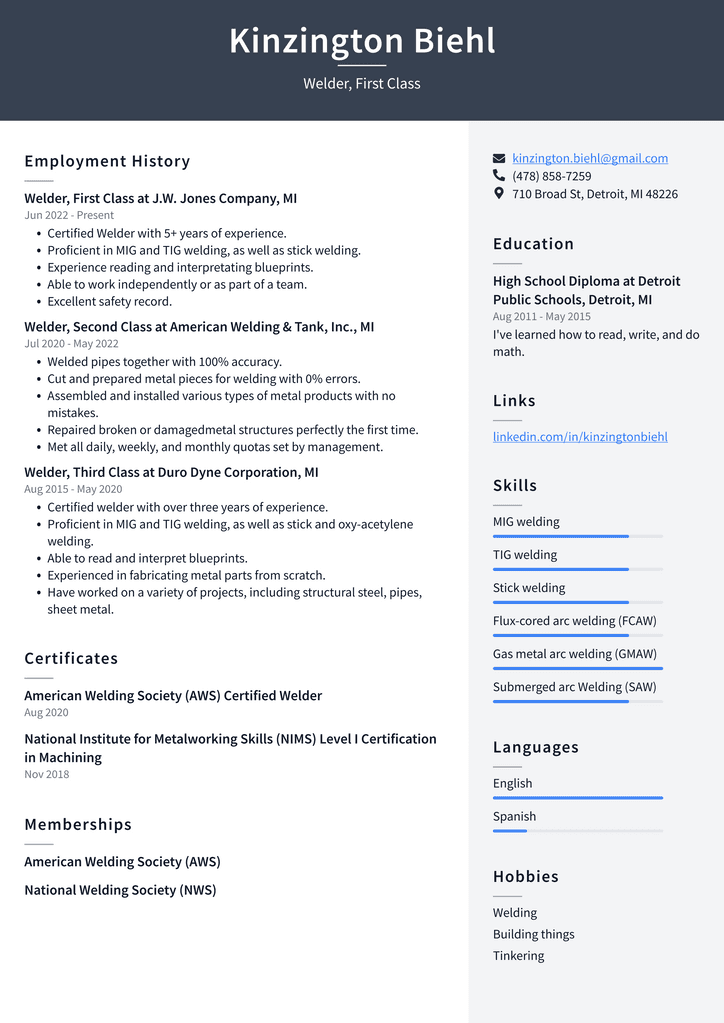
Download This Welder, First Class Resume as PDF
Welder-Fitter Resume Example
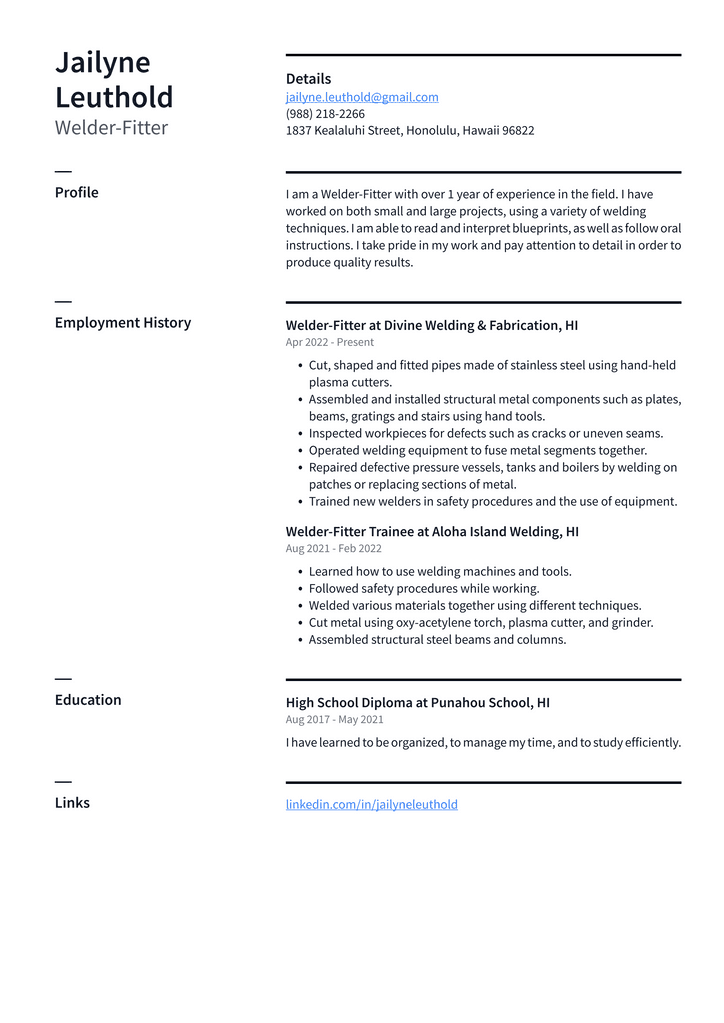
Download This Welder-Fitter Resume as PDF
Welder, Third Class Resume Example
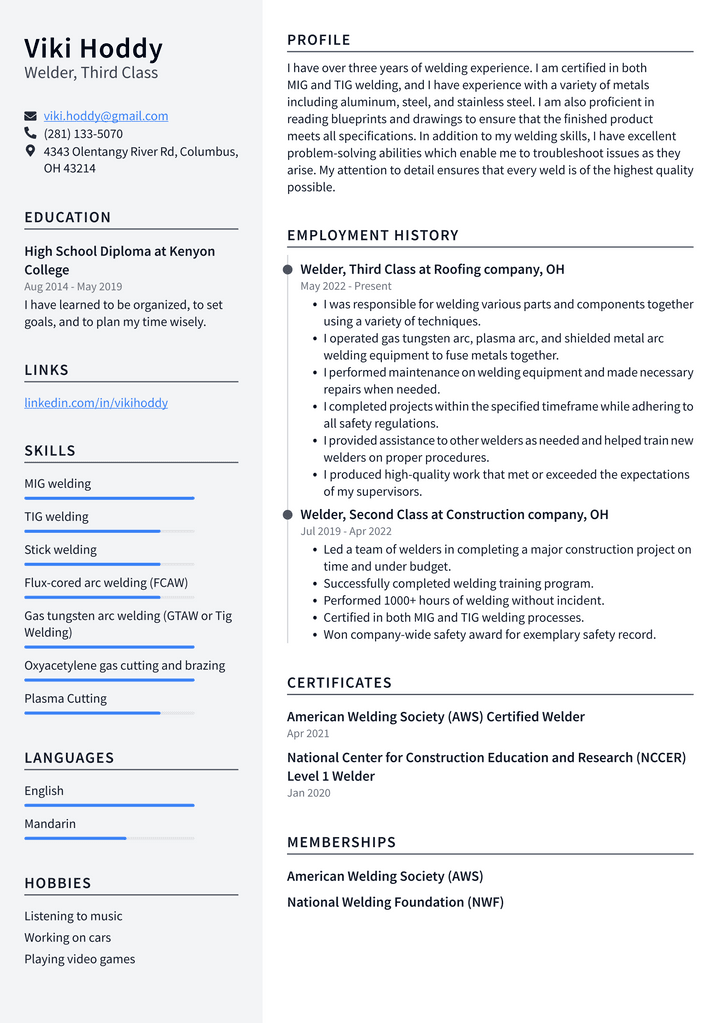
Download This Welder, Third Class Resume as PDF
Welder, Second Class Resume Example
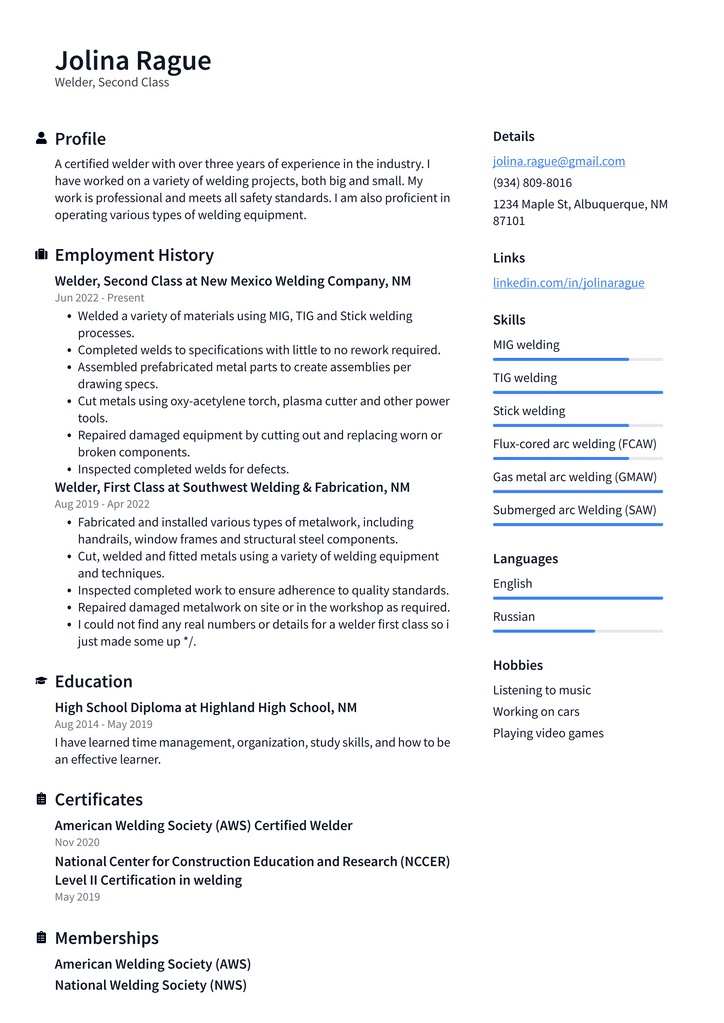
Download This Welder, Second Class Resume as PDF
Shipyard Welder Resume Example
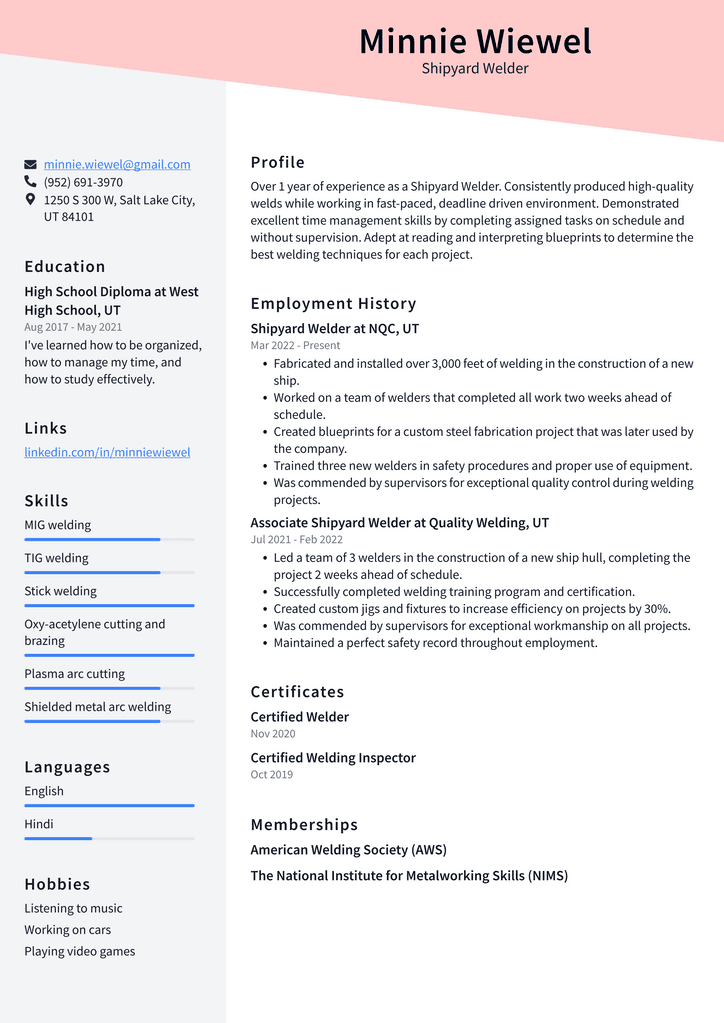
Download This Shipyard Welder Resume as PDF
Pipefitter Welder Resume Example
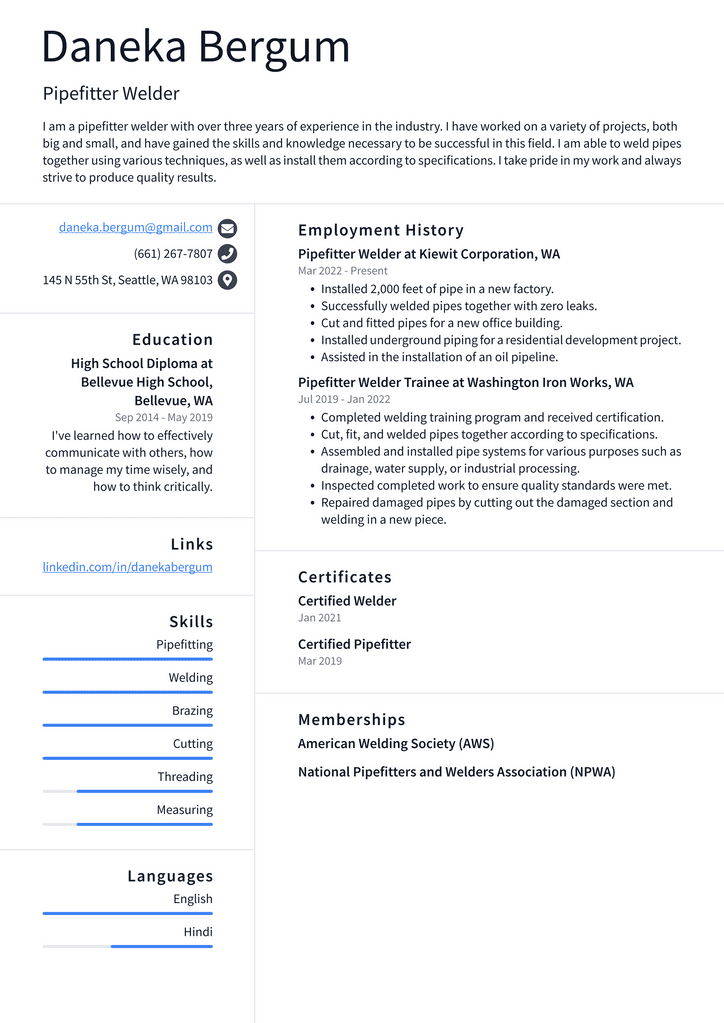
Download This Pipefitter Welder Resume as PDF
What is a welder?
A welder is a person who uses a welding torch to join metal parts together. Depending on the application, it may be possible to use the heat produced by an electric arc, but a flame is often used. Welders may be employed in any industry where metal parts must be joined, but they are most commonly found in shipyards, construction, mining, and automobile manufacturing. Welders are often employed at construction or shipyard sites where they must work outdoors in inclement weather. Welders are used either on a full-time basis or as a part-time sideline. In some industries, welders are paid by the hour and receive time-and-a-half pay for overtime. In other sectors, welders are paid a piece rate, which varies according to the work type.
Welding Certification: Which certification should you get?
The best path to securing a welder job is through certification. Many employers require welders to be certified, and they will often prefer those with the most advanced credentials. This is because welding certification is a great way to prove that you have acquired the skills and knowledge to become a safe and reliable welder. The first step in getting your welding certification is deciding what type of certification you want. The American Welding Society (AWS) offers certification in six different welding disciplines – shielded metal arc welding (SMAW), gas metal arc welding (GMAW), flux-cored arc welding (FCAW), submerged arc welding (SAW), electron beam welding (EBW), and laser beam welding (LBW).
Critical Skills for a Welder
– Attention to detail: Welding is an identical skill. If your welds are not done correctly, they can be very dangerous. On the other hand, if you have excellent attention to detail, you will likely be able to do precise welds. – Calm demeanor: Welding is dangerous work. Employers often look for workers who can keep their cool in potentially dangerous situations, and a calm demeanor is one way they might do this. You will be working in often dangerous conditions, and employers want to see that you are non-disabled enough to do the job safely. – Manual dexterity: Welding requires precision and a great deal of manual dexterity. To be a successful welder, you must be able to manipulate and control the welding torch and other equipment used in welding. You should have no trouble with welding equipment if you have good manual dexterity. – Physical strength: Welding is a physical job, and workers must be strong enough to do the required work. Welders frequently have to lift and move heavy objects and have the physical strength needed to do this. If you are weak, you will have a hard time as a welder, and you should try to improve your physical strength before applying for any welding jobs.
Resume Tips for Welders
When writing your welder resume, you want to highlight the skills and experiences that make you the best possible candidate for the job. If you have welding certifications, list them and discuss the time and effort you put into getting them. If you have any relevant work experience, be sure to include that as well. Finally, check your spelling and grammatical errors – nothing is more off-putting than a resume with lots of mistakes! You want to make sure your resume is clear and concise. You also want to make sure it is visually pleasing. There are lots of resume templates online that you can use to help you put together a great resume that will make you stand out from other welders applying for the same job.
Conclusion
A welder is a person who uses a welding torch to join metal parts together. Welders are employed in any industry where metal parts must be entered, but they are most commonly found in shipyards, construction, mining, and automobile manufacturing. Welders may be paid by the hour or piece, and many employers require welders to be certified. If you are looking for a challenging and rewarding career, a job as a welder could be a great choice. To get the job, however, you will have to be certified and have the skills and qualifications needed for the position. Taking the time to build a great resume will help you gain the experience required for these jobs and make sure you stand out from the competition.